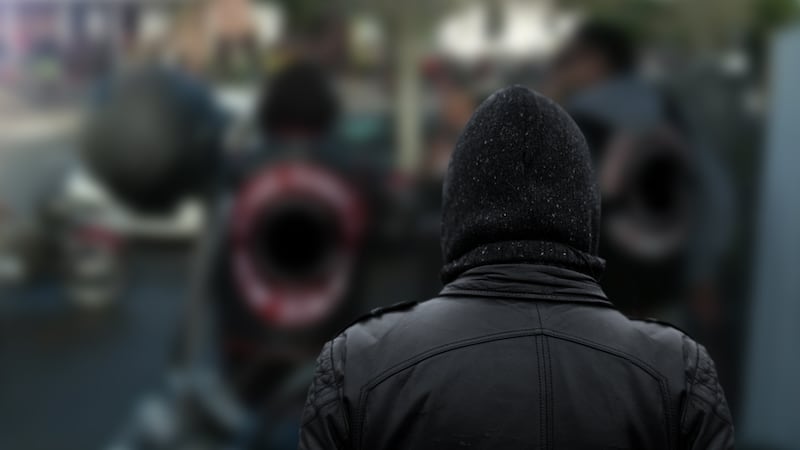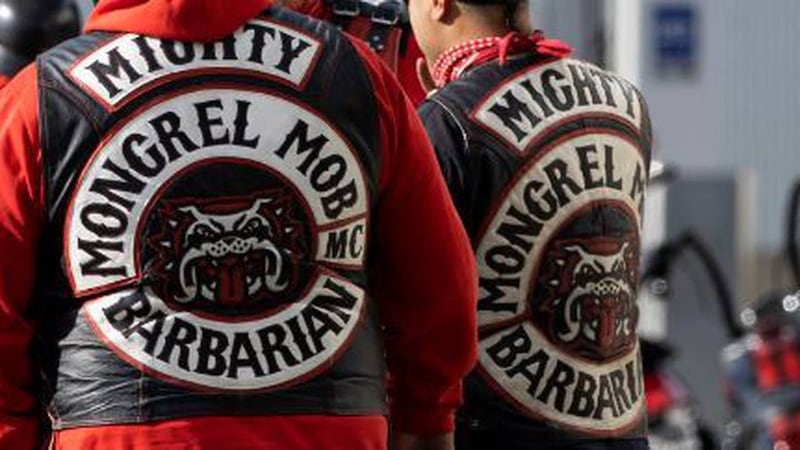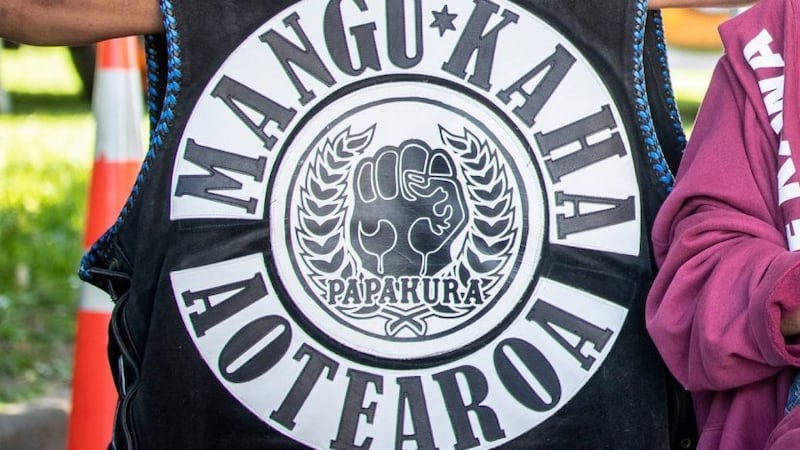Former mayor Michael Laws says the Whanganui District Council’s short-lived gang insignia ban was highly effective and led to a 15% drop in the number of gang members in the district.
The controversial bylaw also reduced gang visibility and inter-gang clashes, he told Local Democracy Reporting.
The Government is about to introduce legislation to crack down on gang crime, banning gang insignia in public places and giving police greater powers to stop gangs from gathering.
Some critics have labelled the move as political, and questioned whether police could enforce the ban.
However, Laws – Whanganui district’s mayor from 2004 to 2010 – said the success of the Government’s tough line on gangs depended on how police use any new law.
In Whanganui, a special gang policing unit produced “a brilliant result”, he said.
“It was effective, very effective,” Laws said. “It really relies upon the police. It’s not a silver bullet but it’s a really useful policing tool for keeping gangs under control.”

The Whanganui bylaw gave police powers to fine patch wearers $2000 and confiscate gang insignia. Police were also granted powers of arrest, search and seizure to help enforce the bylaw.
“It was prompted by the murder of Jhia Te Tua, a little girl living in a house in Puriri St,” Laws recalled. “Her father was a Black Power member who had been involved in an altercation that day with Mongrel Mob members.
“They drove past her house and fired shots and one of those shots instantly killed two-year-old Jhia.”
There was also a series of public disorder incidents “involving the intimidation of citizens” in the main street, including a playground fight between rival gang members.
Laws said the bylaw was an effort to curb the rising violence.
“When that patch is on, you’re a different person, you have to be. You’re a gang member and you’re that gang. You assume that reputation. You’re a one percenter and you exhibit that to the world.
“Take the patch off and you go back to being normal. We just wanted people to be normal again.”

Whanganui police were initially reluctant to implement the bylaw but received direct instruction from the police regional commander to do so, Laws said.
“It was then used by the police to harass, annoy and upset gang members in their activities in the district.
“For example, if displaying gang patches or colours, police could also search cars in which gang members travelled to detect and prevent other crimes.”
A year after the council’s Prohibition of Gang Insignia was introduced, Whanganui police described it as a success story for the community and police.
At the time of the ban, Whanganui area commander Inspector Duncan MacLeod told media there had been a 15% drop in the number of patched gang members living in Whanganui and 13 prosecutions in the first nine months of the bylaw for wearing gang insignia – mostly t-shirts.
He said a number of senior gang members in town had been jailed and others had left town.
Gang presence was less noticeable and levels of intimidation in the community had dropped, MacLeod said at the time.
Laws said people reported feeling safer because they weren’t seeing gang patches around.
“I got an email from a lady who identified herself as the partner of a Hells Angels member. She said it was lovely to be able to walk down the main street of Whanganui with him and not have him acting up.”
The bylaw came into force after Laws researched legislation in Australia that banned motorcycle gang insignia.
“We took the concept to a referendum of all Whanganui residents in 2006. Over 60% of residents voted, and voted for the ban.”

The council wrote a local Bill, introduced to the House in November 2007. A local Bill is one promoted by a local authority to become a local Act that affects only a particular part of New Zealand.
The Wanganui District Council (Prohibition of Gang Insignia) Act was passed in May 2009, empowering the council to form a bylaw to ban gang insignia in specified places within the district.
In July 2010, the Hells Angels sought a High Court judicial review of the bylaw and the High Court ruled the bylaw invalid.
“The judge deemed that the area covered by the bylaw was too large and that a new bylaw could be drafted that centred just upon defined areas where the incidents of intimidation occurred,” Laws said.
Laws – now an Otago Regional councillor living in Central Otago – retired as Whanganui mayor in October 2010. The next mayor and council decided not to implement a new bylaw.
Police have been approached for comment.
LDR is local body journalism co-funded by RNZ and NZ On Air



